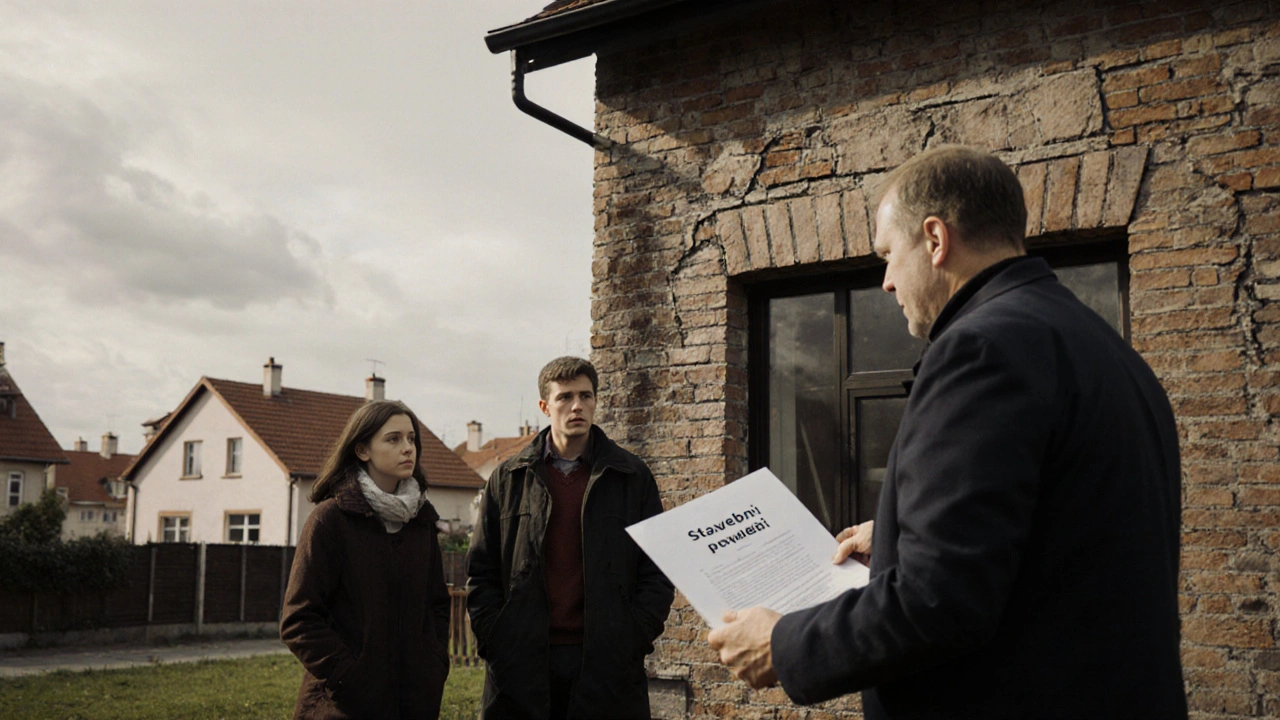Nelegální stavba: Co to znamená, jaké má důsledky a co s tím
When you build something without a permit, you’re not just cutting corners—you’re risking your home, your money, and your peace of mind. A nelegální stavba, stavba provedená bez platného stavebního povolení nebo v rozporu s ním. Also known as neoprávněná stavba, it includes anything from a garage extension to a full second floor added without paperwork. This isn’t just a bureaucratic hiccup—it’s a legal time bomb. In the Czech Republic, even small changes like adding a balcony, converting an attic, or building a shed over 25 m² require approval. Skip that step, and you’re playing with fire.
What happens next? The building authority finds out—through a neighbor’s complaint, a satellite image, or during a property sale. Then comes the stavební povolení, oficiální dokument, který umožňuje stavební činnost podle územního plánu a stavebního zákona. Without it, you can’t legally sell the property, get a mortgage, or even insure the extension. And if you’re caught, you face a pokuta za nelegální stavbu, finanční sankci, která může dosáhnout až 2 milionů korun podle zákona č. 183/2006 Sb.. Worse, you might be forced to tear it down. I’ve seen families lose €50,000 in renovations because they thought "no one will notice." They did. And they paid.
But it’s not all doom. Many kontrola staveb, proces, kdy úřad zjišťuje, zda byla stavba provedena v souladu s povolením. can be resolved retroactively. If your structure meets safety and zoning rules, you can apply for a potvrzení o splnění podmínek—a legal backdate. It’s not cheap, and it takes time, but it’s better than demolition. The key? Act before the authorities knock on your door. Document everything: photos, invoices, materials used. If you’re buying a house and see an unpermitted extension, ask for proof of legalization. If there’s none, walk away—or negotiate the cost of fixing it into the price.
And don’t forget the katastr nemovitostí, oficiální rejstřík, kde se zapisují všechny nemovitosti a jejich změny.. If your extension isn’t recorded there, it doesn’t legally exist. That means no value added to your property, no tax deduction, and no legal claim if someone damages it. Many people think they’re saving money by skipping paperwork. They’re not. They’re just hiding a liability.
Below, you’ll find real-life stories and practical guides on how to handle exactly this—whether you’re dealing with a neighbor’s unpermitted shed, planning your own renovation, or just trying to understand why your house value dropped after a "quick fix." These aren’t theoretical tips. They’re lessons from people who’ve been there. And they’ll save you thousands.
Koupě nemovitosti bez platného stavebního povolení může vést k pokutám, demolici domu nebo ztrátě investice. Zjistěte, jak se chránit, co se změnilo od července 2024 a proč je dokumentace klíčová.

